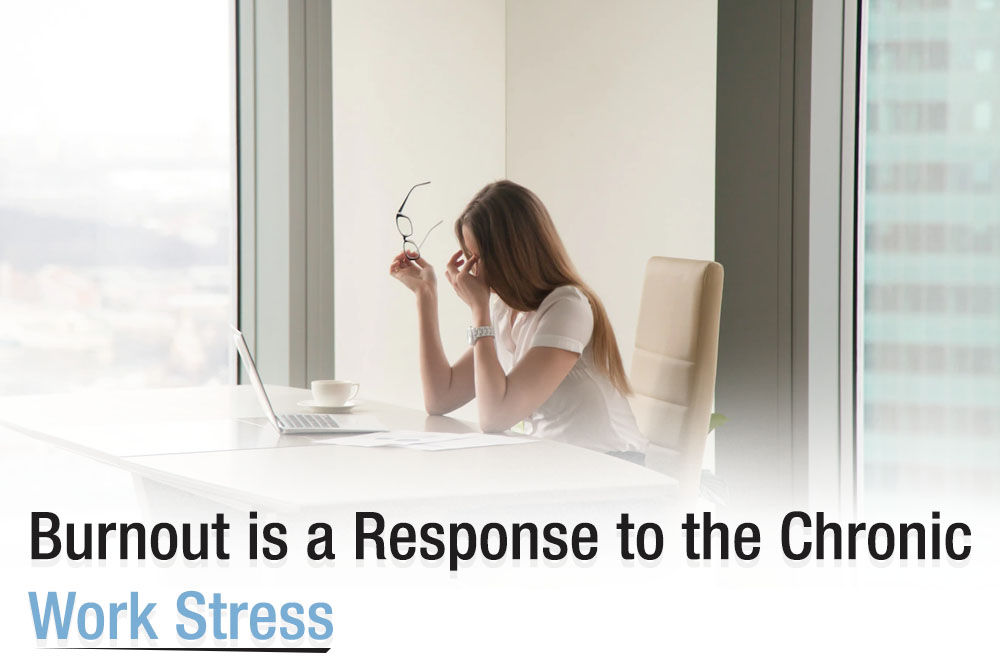Dear Yogesh,
I have worked in a multinational company for over 10 years and am delighted with the steady growth. About a year ago, our company was acquired by a group of investors who hired their CEO. At first, he seemed perfect, with all the good things to say about the work environment and promotions. However, he left what he once claimed shortly after cementing his position. His goal is to get as much short-term profit from the company as possible.
He called for massive layoffs, especially in the HR department. This makes our jobs more tiring and doubles our working hours. We've moved from a well-structured referral,a management training, and leadership development program to doing the bare minimum for compliance, compensation, and benefits.
Now, I might have to find a new job, which is a new burden for me. Please make some suggestions!
Regards,
Akshay
Dear Akshay,
Burnout is a response to the chronic work stress that people often face. People wear and tear every day until they find themselves in a deep and pervasive state of exhaustion, cynicism, and depression.
This is a situation many people have encountered recently. People use a widely discussed technique to prevent burnout: "quiet quitting." It involves reducing your work commitments, and the time it takes to fulfill them. This approach may provide temporary relief but does not address the underlying problem that causes burnout.
In an article on positive psychology, Dr. Alicia Nortje points to research initiated by Christina Maslach, Susan Jackson, and Michael Leiter. She wrote:
Employees who experience burnout initially try to distance themselves from their work. Instead, they take a longer time to respond to work requests, go to the office less, and focus less on work. If left unchecked, it can trigger the second stage of burnout, where employees feel pessimistic and cynical about their jobs.
Maslach and Leiter reported a similar phenomenon in their study of early predictors of Job Burnout and Engagement. They wrote this exhaustion." Actions that provide emotional and cognitive distancing from work may be a way of dealing with work overload."
Both descriptions sound a lot like the objectives of quiet quitting.
A better option for beating burnout is to rethink your work environment. In an article for the Stanford Social Innovation Review, Maslach and Leiter outline six categories of personal or organizational concern to help diagnose the causes of burnout and tailor solutions to problem areas.
1. Workload: Mismatch between high demand and low resources. There is a lot of work, but not enough time, people, tools, or information to do it all.
2. Control: How many options, complete discretion, and say you have the innovation you do or do something better or different.
3. Reward: Not just pay and perks, but recognition for good deeds and the social and intrinsic rewards of doing good.
4. Community: Especially the work community. Who are the people you frequently interact with? Do these relationships help solve problems and make things better?
5. Fairness: Humans must be treated equally, regardless of the system or problem.
6. Values: The meaning of work and pride when you do a good job.
Maslach and Leiter propose a dialogue that uses these six domains to guide individuals and organizations to take informed action—first identifying potential violations that could lead to burnout, then collaborating on problem-specific approaches, and finding solutions.
Don't Quit—Fix the Underlying Issues
Quiet quitting begs the question: What's wrong with work in the first place? Looking closely, the root cause of quiet quitting may be more profound than working too hard. Reducing your workload or level of care can end the misery in the short term. Still, if you take other environmental factors, you're just suffering from persistent problems—or worse, rejecting them.
All the best,
Yogesh
Reference Link: The above is an adaptation of a blog written by
David Witt on August 30, 2022.

